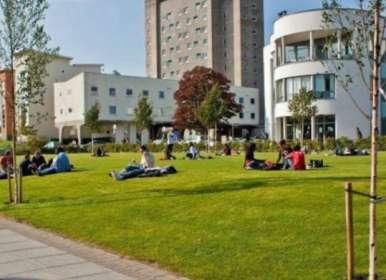The three steps to studying in Canada include selecting a program of study, receiving a letter of acceptance, and then obtaining a study permit.
Among the key advantages of studying in Canada is it gives you with more potential options to apply for Canadian permanent residency status.
How Study In Canada
The following are the steps you need to take if you wish to study in Canada and transition to permanent residence:
Step 1, choose a program: Find the Canadian educational program you wish to enroll in by doing some research.
Apply to a certified learning institution in Canada in Step 2: Apply to the Canadian designated learning institution (DLI) of your choice after choosing which educational program to pursue.
Step 3 – Apply for a study permit: Obtaining a letter of acceptance is the third step. Cohen Immigration Law can assist you in applying for a study permit with the Government of Canada. Most persons require a study permit in order to be able to legally continue their studies in Canada.
Step 4: Research your immigration options: Cohen Immigration Law will assist you with staying in Canada after completing your studies so that you can get more professional work experience and apply for permanent residence.
What Advantages Come with Studying in Canada?
With more than 800,000 students from all over the world, Canada is currently one of the top destinations for international students.
According to research, the following factors make Canada attractive to foreign students:
• Canadian schools provide education of the highest caliber.
• Canada provides foreign students with prospects for employment both during and
• Following their schooling, they move on to
a commitment to staying
• Possibilities to study in either French or English
• Protection and security
• Cultural diversity
• Every year, Canada welcomes immigrants and foreign students from close to 200 different nations.
• Compared to other well-liked foreign student destinations, Canada is more cheap. And keep in mind that the Canadian dollar is less strong than other currencies like the US dollar, British pound, and euro.
About Universities and Colleges of Canada
The most DLIS are located in Ontario and Quebec because they are the two most populous provinces in Canada (nearly 1,000 combined).
You are extremely likely to locate an educational program that matches your needs in Canada’s enormous pool of DLIS.
Immigration, Refugees and Citizenship Canada (IRCC) has granted permission to more than 1,500 universities, colleges, and other educational institutions to accept international students. These educational establishments, also known as designated learning institutes (DLIs), exist to assist foreign students in studying in Canada and continuing to live there after they graduate. The number of DLIs that the IRCC has approved is continually expanding. Please be sure the college, university, or other setting you want to attend is approved by the IRCC by http://visiting the Canadian government’s official website.
In general, Canadian institutions provide high-quality education at comparable levels. This is because Canada encourages equity within its educational system, which means it works to guarantee that all students receive the greatest education possible, regardless of the institution they attend.
Moreover, Canada offers 150 community colleges that provide high-quality education. University programs typically focus on teaching academic information and career training for specific professions (such as medicine, engineering, and law), whereas community schools provide more practical training to assist students enter the workforce more rapidly. College programs are more useful since they give students knowledge that will assist them get employment in their field of study.
Colleges in Canada often offer the same degrees of study as universities. Studying at a Canadian university or college is reassuring for international students because it will help them achieve their professional and immigration goals after they graduate.
Paths to Permanent Residency through Study (PR)
After completing their postsecondary studies in Canada, international students have a variety of options for extending their stay and eventually making the move to permanent residency.
Your Canadian education may provide you a competitive edge when applying for Canadian permanent residence. Candidates with Canadian educational background and work experience are valued by many federal and provincial immigration programs.
By acquiring a Post-Graduation Work Permit (PGWP), which, depending on your Canadian academic program, may enable you to work in Canada for up to three years after completing your studies there, you can gain Canadian job experience.
You can then seek a variety of options for federal and provincial permanent residency while holding a PGWP, including:
Explicit Entry
Express Entry profiles are among the most popular ways to apply for permanent residence. Canada’s primary method for handling applications for immigration under the economic category is Express Entry.
The Complete Ranking System is used to evaluate Express Entry applicants. Candidates who are young, have completed their school and have worked in Canada are rewarded by the Comprehensive Ranking System. Many international students studying in Canada exhibit these qualities.
Program for Provincial Nominees (PNP)
The Provincial Nominee Program (PNP) enables Canadian provinces and territories to find immigrants who can suit their specific economic demands. Candidates who have experience with overseas students or who have a strong commitment to them are rewarded in many PNP streams.
Quebec
Quebec is the second-largest province in Canada, and the city of Montreal is particularly well-liked by visitors from other countries. Using initiatives that are distinct from those provided by the federal government and the PNP, the province runs its own immigration system. Quebec also invites former foreign students to move there permanently. The Quebec Experience Program is one of the main ways it aims to achieve this.
For additional information, be sure to get in touch with Danza Trips and Tours. Call or text our travel agent specialist at 08038691654, or send an email to danzatravels@gmail.com or Info@danzatravels.com.







